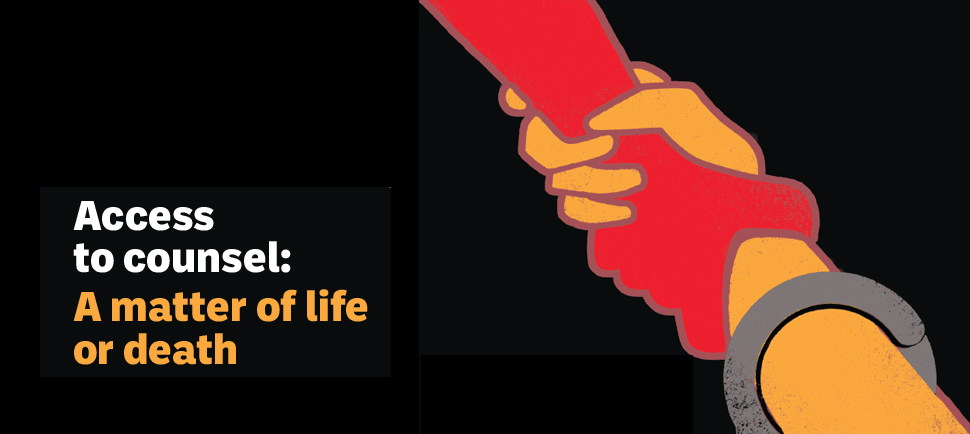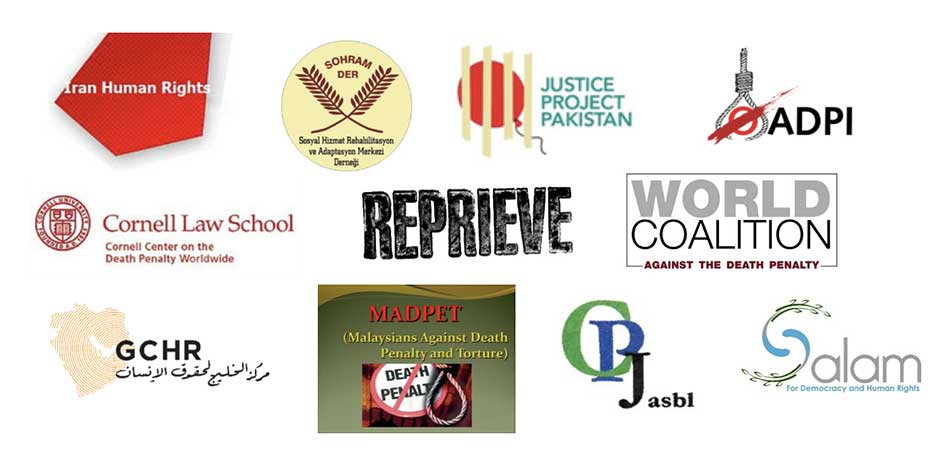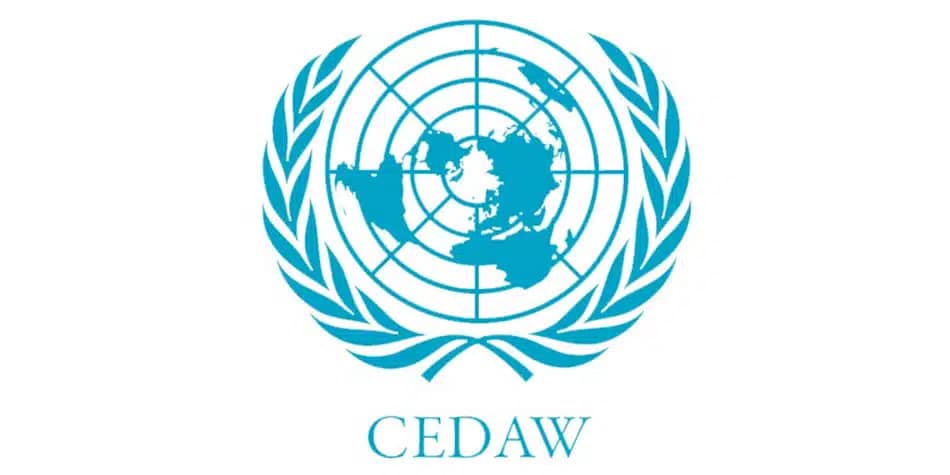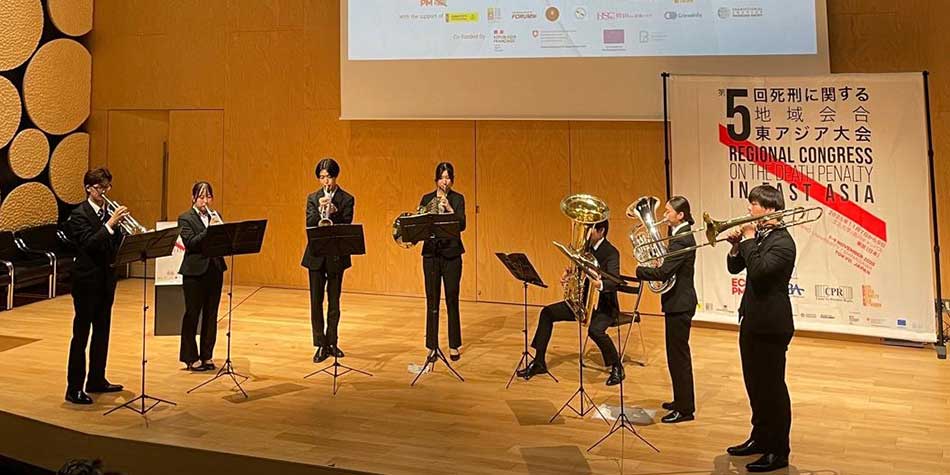
The 18th World Day Against the Death Penalty Highlights the Life-Saving Importance of Effective Legal Representation in Capital Cases
World Day
The 18th World Day Against the Death Penalty explored the theme “Access to Counsel: A Matter of Life or Death” in light of the continued execution of individuals who struggle to have adequate support from their lawyers, who consequently also face their own challenges in the judicial system. Having access to qualified and effective representation at all stages of a trial is important to ensuring due process, and can spell the difference between life and death for people facing capital punishment. Although access to effective legal representation is guaranteed in most constitutions and human rights instruments, many justice systems continue to violate this right.
The abolitionist community commemorated the World Day through advocacy, art, education, policy, and protest. This year’s World Day was marked by the COVID-19 pandemic, which has prompted many of the World Coalition’s members and partners to hold their events virtually or to modify them to take safety measures into account.
Asia: Taking Bigger Strides Towards Regional Abolition
Kazakhstan recently signed the Second Optional Protocol (OP2), aiming at the abolition of the death penalty – a step that was welcomed warmly by the global abolitionist community. In a high-level conference dedicated to the World Day, Kazakhstan’s Foreign Minister Mukhtar Tileuberdi spoke out against the death penalty and stressed the country’s commitment to upholding the fundamental right to life and human dignity. Tileuberdi hoped that Kazkahstan could lead the way towards making Central Asia a region completely free of the death penalty.
In the Philippines, two webinars were organized by local NGO Karapatan and the Commission on Human Rights, with the latter launching a research study titled “In Defense of the Right to Life: Analyzing Factors Affecting Filipino Opinion About the Death Penalty” and the Right to Life website, which serves as a database containing information about the death penalty and a repository of advocacy tools.
Africa: Bringing People Together Through Art and Policy

In Uganda, the Foundation for Human Rights Initiative’s commemoration of the World Day was featured a wide range of activities, including the singing of songs by St. Egidio Children’s Choir, the reading of a poem by Katika Africa, the delivery of testimonies by former death row inmates, and presentations by Uganda Prisons Service and the Makerere University.
The Republic of Congo chapter of the international NGO Action des Chrétiens pour l’Abolition de la torture (ACAT) organized a symposium that gathered members of the Senate, the National Assembly, the National Commission for Human Rights, and the Ministry of Justice, among many others. ACAT Congo explained the importance of the OP-2 and called on parliamentarians to ratify the instrument.
In Egypt, the Egyptian Initiative for Personal Rights published a comprehensive article explaining the right to access a lawyer and an effective defense for those sentenced to death. They situate such discussions within the Egyptian legal framework and provide answers to questions that are important in capital cases, such as “How can attorney-client communication be effective?” and “Are lawyers assigned to cases accompanied by a death sentence?”.
Media Coverage: Amplifying Public Statements and Social Media Posts from Every Corner of the World
With the constraints posed by the pandemic, the abolitionist community took to the online sphere to express support for the 18th World Day. The World Coalition led a 10-day countdown on Facebook, Twitter, and Instagram, which featured statistics and fun facts about abolitionist progress, as well as testimonies from people on death row and their lawyers. For the first time, Facebook profile picture frames bearing the visuals of this year’s World Day theme were launched in both English and French. On WhatsApp, tools were sent to partners on the African continent, which they then disseminated to nearly 3,400 people in their networks. Thousands of posts from civilians, embassies, political figures, and organizations used the hashtag #nodeathpenalty to express support for the abolitionist movement.
Organizations at local, regional, and international levels have also expressed support for the World Day through statements and press releases. In a joint statement, the European Union and the Council of Europe reiterated their opposition to the use of capital punishment and called on member states to support the moratorium resolution at the 75th session of the UN General Assembly. The African Commission on Human & People’s rights also published a communique condemning capital punishment. The national governments of many abolitionist countries released press statements expressing their commitment to the cause, including Australia, Belgium, France, and Portugal, among many others. Canada reiterated its “strong opposition to the use of the death penalty in all cases, everywhere” and announced its intention to join the Support Group of the International Commission Against the Death Penalty, further strengthening the abolitionist cause at the occasion of the World Day.
Categories
Australia Belgium Canada Congo Egypt Fair Trial France Kazakhstan Philippines Portugal Uganda






